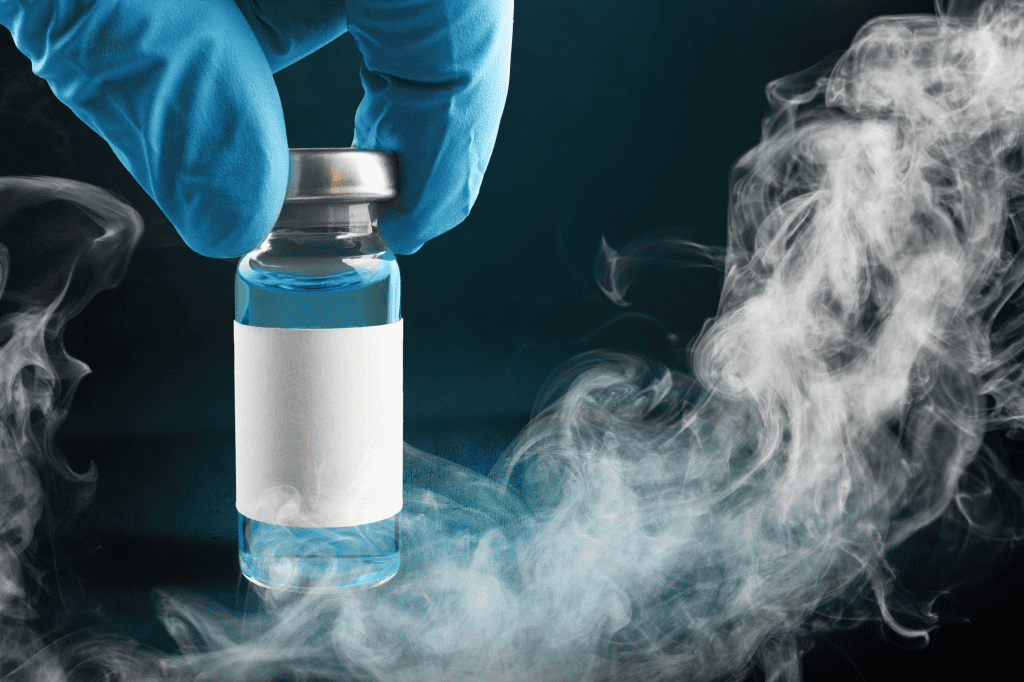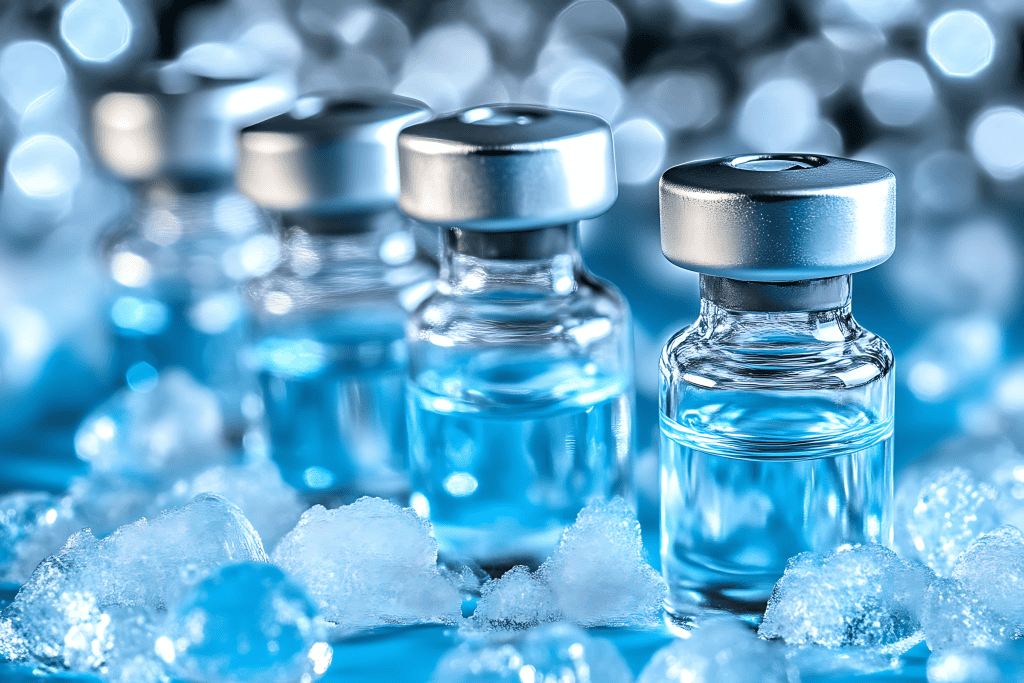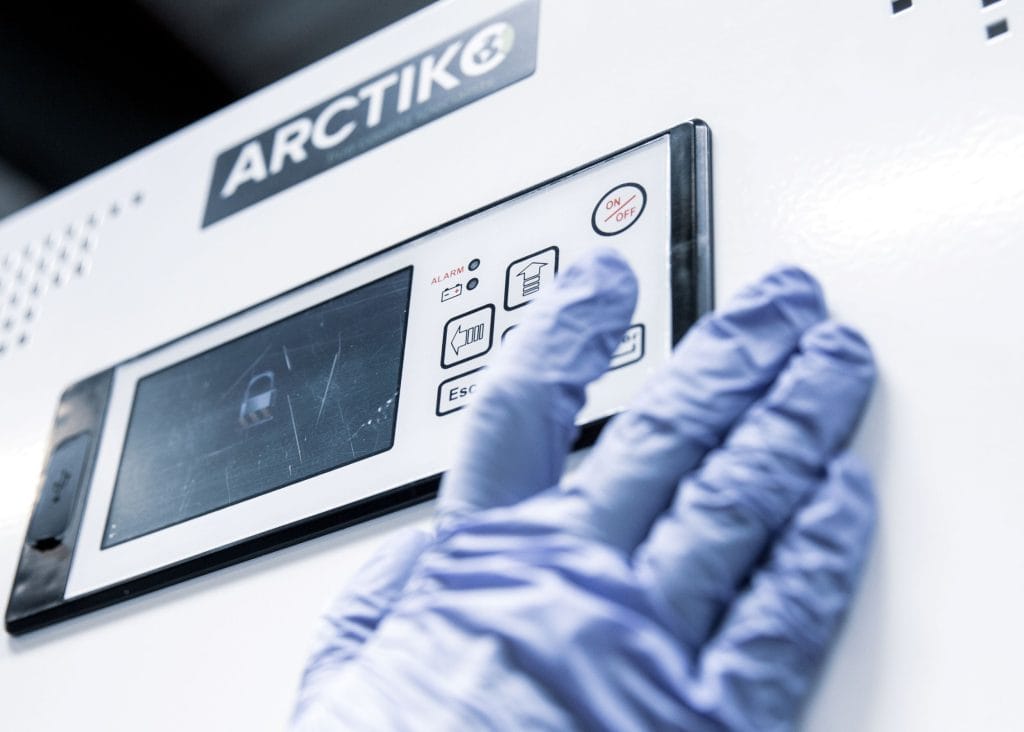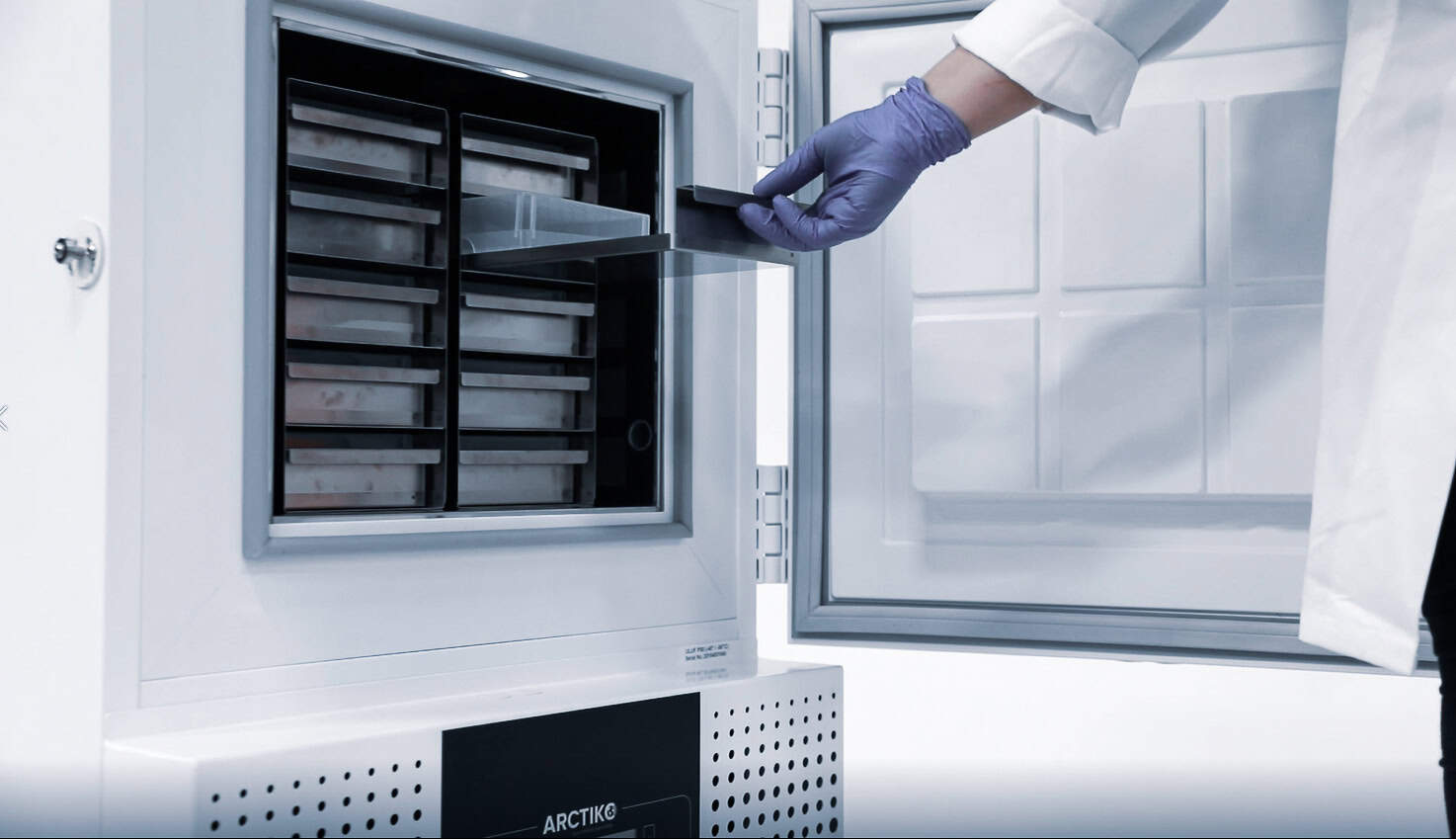In today’s pharmaceutical and life sciences industries, cold chain compliance is non-negotiable. As we move through 2025, the demand for tightly regulated, temperature-sensitive therapies continue to grow, alongside the expectations of global regulators. Ensuring safe and compliant storage and distribution of vaccines, biologics, and other high-value pharmaceuticals has never been more critical.
ARCTIKO designs and manufactures advanced cold storage solutions, engineered specifically for life sciences. Our ultra-low temperature freezers, medical refrigerators, and integrated monitoring systems deliver precise control, exceptional stability, and total reliability. Protecting even the most sensitive materials at every stage of the cold chain.
What is Cold Chain Compliance?
Cold chain compliance is strict control of temperature conditions during storage and transport. It protects the safety, potency, and quality of sensitive products like vaccines and biologics by preventing excursions, degradation, and contamination. Even brief temperature deviations can lead to ineffective, or unsafe products, resulting in costly losses and serious public health consequences.
Why Cold Chain Compliance Is More Crucial Than Ever in 2025
The pharmaceutical cold chain logistics market is forecast to exceed $65 billion this year, with projections reaching $137 billion by 2034. This rapid growth is driven by the increased use of temperature-sensitive treatments like cell and gene therapies, mRNA vaccines, and biologics – all of which demand exact cold chain conditions.
With regulators worldwide intensifying their oversight, tightening guidelines like Good Distribution Practices (GDP). Life science organisations must rely on validated, high-performance cold storage infrastructure to remain compliant.

Key Cold Chain Requirements
To meet the latest regulatory expectations, cold chain systems must be built around the following essentials:
- Precise Temperature Control: Storage systems must consistently maintain narrow temperature ranges (e.g., +2°C to +8°C, -20°C, or -70°C and below).
- Continuous Temperature Monitoring: Automated, real-time monitoring must be in place to detect deviations instantly.
- Validated Equipment: Fridges, freezers, and monitoring systems must be validated to perform reliably and accurately.
- Secure Storage: Temperature-controlled storage must include restricted access, alarmed systems, and fail-safes to protect valuable inventory.
- Specialised Packaging: Temperature stability during distribution requires validated thermal packaging solutions.
- Detailed Documentation: Complete records must be kept for monitoring data, calibrations, maintenance, and deviations.
- Emergency Response Protocols: Backup systems for power failure, alerts, and alternative storage must be readily available.
- Trained Personnel: Everyone involved in cold chain management should be fully trained in correct handling procedures and emergency actions.
Key Cold Chain Regulations
Compliance with global cold chain regulations ensures both product integrity and operational legitimacy. Some of the most important frameworks include:
- Good Distribution Practices (GDP): Global standards for storage, handling, and transport of medicines, focused on ensuring product quality throughout the supply chain.
- NIST & UKAS-Traceable Calibration: Accuracy of temperature monitoring devices must be traceable to international calibration standards (e.g., NIST or UKAS).
- EU GMP Annex 11 & Data Integrity: These rules cover computerised system validation, audit trails, secure access, and the integrity of electronic data in GMP-regulated settings.
- EU Clinical Trials Regulation (EU No. 536/2014): Applies to investigational products in clinical trials, including how temperature-sensitive medicines are stored and transported.
- National Guidelines: Authorities like the UK MHRA and the U.S. Pharmacopeia offer further regulations depending on the product’s jurisdiction.

What Constitutes a Cold Chain Breach?
A cold chain breach (or temperature excursion) happens when a product is exposed to temperatures outside of its approved range. This can result in:
- Overheating: temperatures rise beyond acceptable thresholds
- Overcooling: accidental freezing of products not designed to be frozen
- Extended duration: even a short deviation can damage highly sensitive products
- Common causes include power failures, faulty refrigeration, poor handling, or leaving storage doors open. For many vaccines, any deviation from the +2°C to +8°C range may result in loss of product viability.
Foundational Principles of Cold Chain Management
An effective cold chain system is built on six core principles:
Temperature Stability: Maintain the required range consistently from manufacturing to point-of-care.
Real-Time Monitoring: Use continuous logging and alerts to identify risks early.
Traceable Records: Keep detailed records for all equipment, product batches, and temperature data.
Proactive Risk Management: Identify and plan for potential failure points across the chain.
Competent Staff: Ensure personnel are trained in both standard procedures and emergency protocols.
Validated Systems: All storage and monitoring equipment must be validated to meet required performance criteria.
Risks of Cold Chain Failure
Failure to maintain proper cold chain conditions can have far-reaching consequences:
- Loss of Product Efficacy: Products may no longer treat or prevent disease effectively.
- Patient Safety Hazards: Damaged products could result in adverse outcomes or toxicity.
- Regulatory Repercussions: Non-compliance can trigger fines, recalls, or licence suspensions.
- Financial Loss: Spoiled products and disrupted supply chains can cost millions.
- Reputation Damage: A single breach can permanently erode public and partner trust.
- Environmental Impact: Disposed pharmaceuticals contribute to environmental waste.
- Supply Interruptions: Breaches may cause stock shortages and delay critical treatments.

ARCTIKO: Precision-Engineered Cold Chain Solutions
At ARCTIKO, we manufacture advanced cold storage systems trusted by the pharmaceutical, clinical, and life science sectors worldwide. Our ultra-low temperature freezers, medical-grade refrigerators, and controlled temperature chambers are engineered for compliance, stability, and performance.
Key Features of ARCTIKO Cold Storage Solutions:
- Built-in Data Logger: Accurate, compliant temperature monitoring
- Energy Star Certified: Energy-efficient and eco-friendly design
- Secure Lock: Prevents unauthorised access to stored contents
- Smartphone Connectivity: Remote access to data and alerts
- Environmental Compliance: Meets EPA and SNAP standards
- Medical Device Certified: Class IIA (MDD 93/42/EEC) compliant
- TRUE DUAL™ Technology: Built-in backup cooling for extra safety
- Low Noise Operation: Quieter performance for lab environments
- Forced Air Cooling: Consistent internal temperature distribution
- Direct Air Cooling: Rapid recovery and uniformity
Building Confidence in Cold Chain Compliance
As a manufacturer, ARCTIKO understands the demands of cold chain management. Our systems are built for reliability, regulatory compliance, and consistent protection of temperature-sensitive products.
Looking to strengthen your cold chain?
Explore ARCTIKO’s ultra-reliable freezers and medical fridges, built for the future of life sciences.

 Fast Delivery
Fast Delivery  Global Compliance
Global Compliance  Long Term Support
Long Term Support